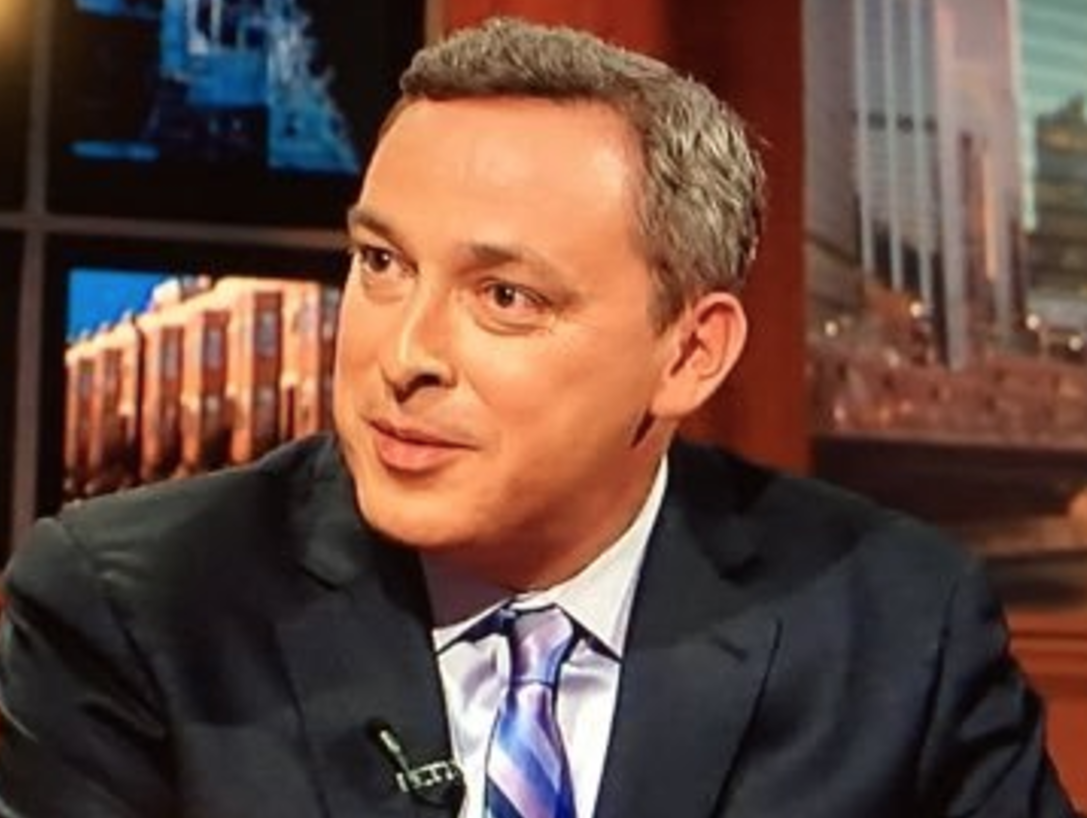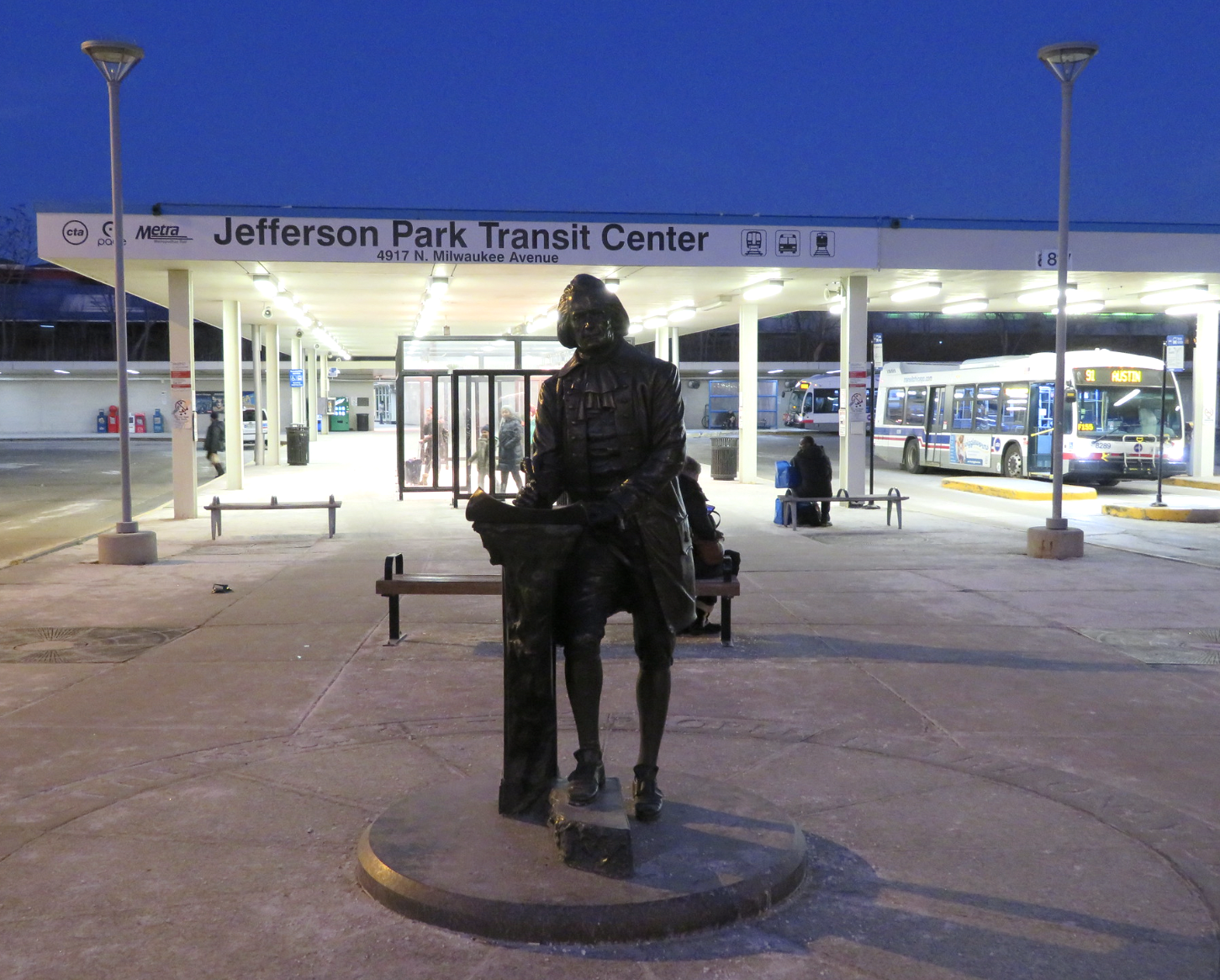In fairness, today's Crain's op-ed on "Fulfilling Chicago's Transportation Destiny" by Illinois Road and Transportation Builders Association president and CEO Michael Sturino isn't godawful. To his credit, Sturino acknowledges that making the region's transportation system "safe, sustainable, inclusive, and effective" will require multimodal solutions, including "increased emphasis" on CTA and Metra, traffic calming, better pedestrian facilities, and protected bike lanes. He also makes sensible proposals to address freight congestion, add charging station to encourage drivers to switch to electric vehicles, build more more riverwalk sections, and, of course, fix potholes.
But in a few places in the piece Sturino betrays the fact that one of his primary responsibilities as the head of a road-building lobbying group is to encourage more highway expansion and, by extension, driving. That's exactly the opposite of what Chicagoland needs in order to have a safer, more efficient, and more equitable transportation system.
Sturino argues that "the interstate highway system throughout the city remains in a state of hypercongestion" and calls for tolling these expressways to manage congestion and promote transit ridership. Simply requiring drivers to pay a new toll to use these highways, which would help fund their upkeep, would be a great idea, but making motorists pay for something they're used to getting for free would be a very heavy political lift.
Presumably Sturino is referring to former Illinois Governor Bruce Rauner's proposals to widen expressways to create new "managed" lanes, which would offer a less congested option for buses, as well as car drivers who opt to pay a toll for a faster trip. Sure, that could potentially speed up the buses a bit and increase ridership somewhat. But as the Active Transportation Alliance and other advocates have pointed out, these expensive road expansion projects would also add more capacity for driving, inducing car trips and increasing surface street congestion and pollution.
Sturino also tips his hand a bit when he claims he's in favor of "thoughtful" deployment of protected bike lanes but argues, "the city must not submit to the calls from a few to wage war on motorized vehicles." The fact is, converting mixed-traffic (commonly known as "car") lanes to bus- and bike-only lanes (with possible exceptions made for scooters and other e-mobility devices) on as many main streets as possible is just common sense from a safety and space-efficiency perspective. The amount of public space currently allotted to cars -- big, heavy, largely empty metal boxes that created traffic jams and can easily kill people -- is what's thoughtless. Addressing that problem certainly doesn't equal a "war on motor vehicles."
"Similarly, Chicago must resist the temptation to combat transportation disruptors," Surino continues. "[Ride-hailing services like Uber and Lyft] must be viewed as friendly competitors to the current transportation system, promoting positive change." Wrong again. Ride-hailing represents artificially cheap car transportation, propped up by venture capital, that serves as unfair competition with the CTA, dragging down ridership, creating congestion that slows down buses, increasing the number of crashes, and creating many other problems. Far from being "friendly competition" to transit, Uber recently admitted in its IPO that it views transit as an obstacle to its "growth strategy."
Fortunately, new Chicago mayor Lori Lightfoot seems to have a more clear-eyed view of the challenges posed to Chicago by Uber and Lyft. In her transportation platform, she promised to "decrease congestion by restructuring ride-hailing fees." She pledged to help write and introduce an ordinance to increase fees for ride-hailing trips that begin in the transit-rich Loop, and use the revenue to fund dedicated bus lanes and expand 24-hour bus and 'L' service. Lightfoot also promised to implement a new fee for ride-hailing vehicles that operate in Chicago but are registered at addresses outside of Chicago.
Sturino can call such policies ill-advised yielding to "the temptation to combat transportation disruptors" if he likes. But it's pretty clear which local leader has the best interests of residents at heart, and which one is more concerned with maximizing profits for road builders.




